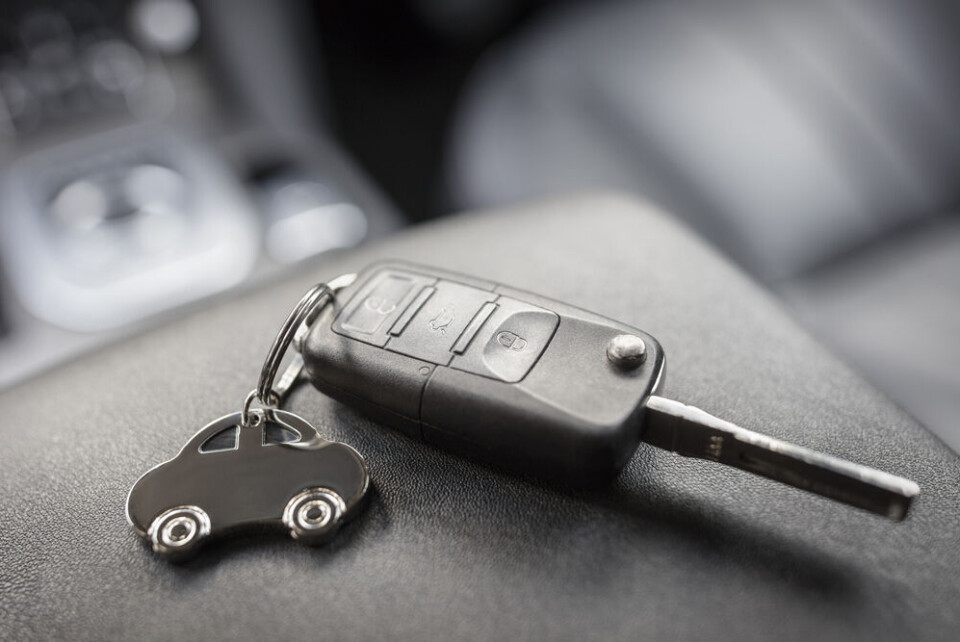-
Renault Clio tops France’s new car sales in 2025 by a wide margin
Popular model widened its lead over rivals with sales far outstripping the Peugeot 208
-
Map shows where road deaths rose most in France in 2025
Overall fatalities increased last year but with sharp regional contrasts, provisional figures show
-
Flashes return on French speed cameras
The government says that flashes are a ‘good educational tool’
Post Brexit is it still beneficial to import a car from UK to France?
Prior to Brexit many considered that the comparatively lower price in the UK justified the extra paperwork

Reader Question: We have lived in France since 2012 and want to buy a second-hand car to replace ours, but in France they are so expensive. What taxes are involved in importing one and who decides the value of the car? Can it still be financially worthwhile?
The option to purchase a second-hand car in the UK and then import it to France is still possible after Brexit – but it may not be beneficial as there are higher costs involved than when importing from within the EU.
As you mentioned, there can be high additional costs for importing the vehicle, including a 20% VAT and a 10% customs duty charge.
Although avoiding the customs duty is possible in some circumstances, the VAT on the French side is unavoidable, and you must pay it to import the car.
Unfortunately this can be additional to any UK VAT paid however it does depend on how a car is purchased.
There would not have been VAT payable for example if bought it from a member of the public. If buying a second-hand (as opposed to new) car from a dealer then VAT is usually only calculated on the dealer’s profit margin and not the total car price.
How is the cost of a car determined?
The value of a car is determined by French customs officials (Douanes) offices.
Firstly, the Douanes will look at the actual invoice or sale certificate.
However, if the officers think it does not realistically reflect the car’s value they may look at the price of a car of the same make and model on second-hand car sales site Argus, and apply a 15% reduction.
Alternatively, customs officials can arrange for an appraisal of the vehicle to come up with their valuation.
Note: for new cars not yet listed on Argus, or cars not intended to be imported into the EU, special calculations are used to estimate the value of the car.
Can I be exempt from paying these customs duties?
You mentioned that you are mainly looking to import a car from the UK because it is cheaper, but you have been living in France since 2012.
You can be exempt from paying certain duties and VAT if you bring a car at the same time as moving full-time from the UK to France. Complete the Duty Free entry form and show it to customs officials.
You can only do this if you are moving for the first time so it does not apply to your case.
A dispensation also exists relating to items which have been inherited.
You are also exempt from customs duties (but not VAT) if at least 55% of the materials used to make a product have their origin in the UK or EU, but this may be rare for used cars.
Read more: How do you sell a second-hand car in France?
Is it still cheaper to do this than buy in France?
Depending on the make and model of your car, it may still be cheaper to import a vehicle from the UK.
You can compare the price of the car you want in each country using online second-hand car sites (such as Argus or Leboncoin in France, and their UK equivalents).
After this, you can then see if an additional 30% payable in addition to the UK price for importing the vehicle (as well as travel costs etc) justifies the purchase.
There is also bureaucracy to address when importing a car from the UK – we review this here – which can be time consuming.
It includes obtaining a certificate of conformity to make sure the car aligns with EU standards, the mandatory roadworthiness test for the car (contrôle technique) and vehicle registration.
Only you can weigh up the pros and cons, but some readers have told us they think it is now cheaper to buy in France than import from the UK.
Related articles:
























